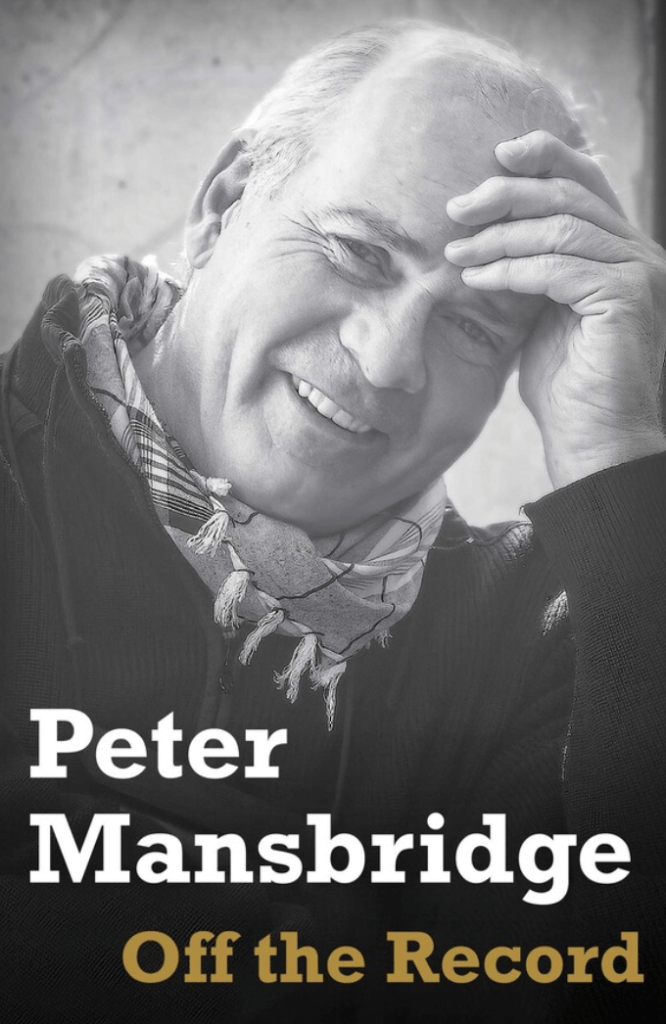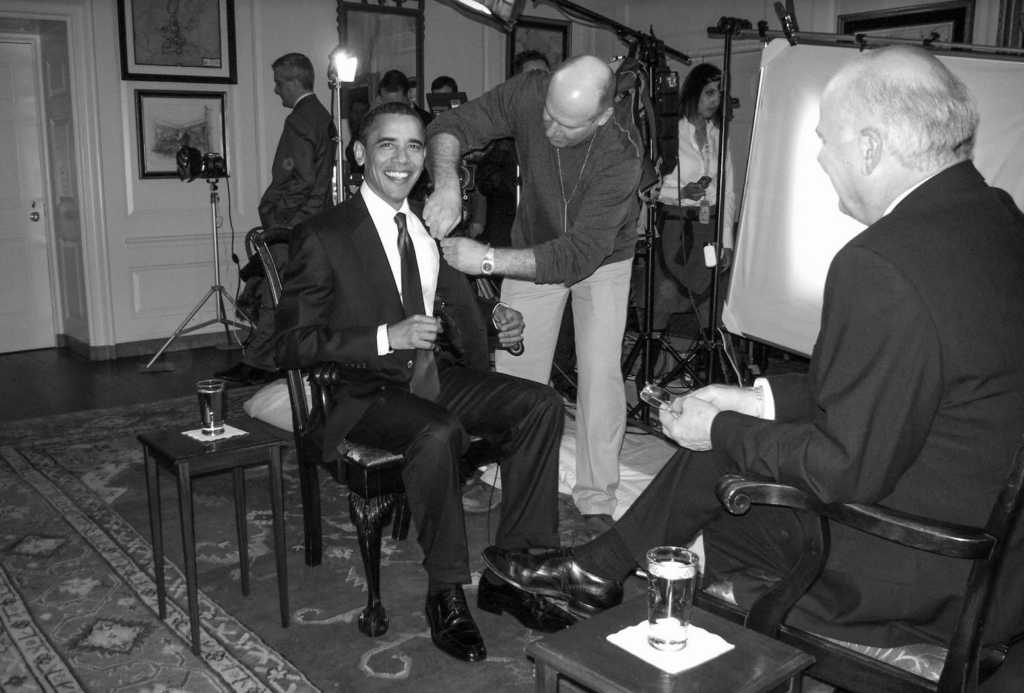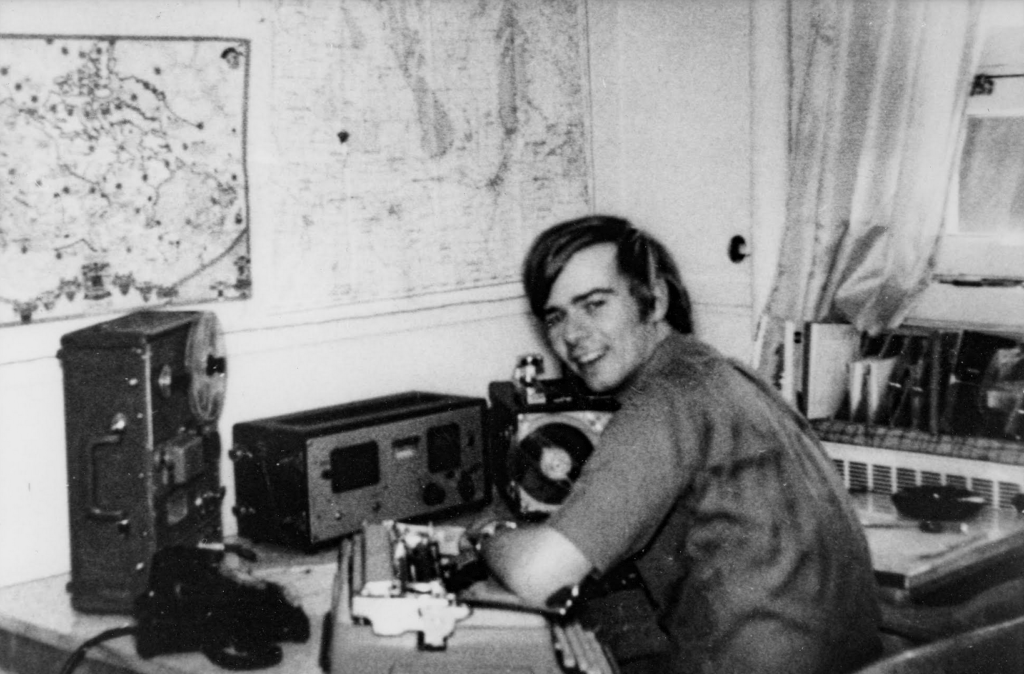Mansbridge: The Man Behind the Voice

By Peter Mansbridge
Simon & Schuster/October, 2021
Reviewed by Anthony Wilson-Smith
September 30, 2021
Shortly after stepping away from his 30-year role as anchor of CBC’s The National in 2017, Peter Mansbridge grew a beard. He also began dressing more often in some of his favourite away-from-work clothes, including sweatshirts and jeans topped off by a ball cap. It was a welcome respite from the “uniform” of the clean-shaven face, dark suit and tie that were a daily fact of life through his broadcast career.
And it brought him something he hadn’t had in a long time: relative anonymity. Visiting Toronto from his family home in Stratford, he discovered that he could go most places unrecognized – until, as he told a friend ruefully, “I open my mouth – and right away, it’s pretty much all over.”
The Voice – calm, friendly, authoritative and reassuring – has been part of Canada’s soundtrack for more than half a century now. In the four years since he left the anchor’s chair, Mansbridge’s voice has remained present, but in different forms and venues. There are speeches, documentaries for the CBC and other networks around the world, his high-ranked daily podcast, The Bridge, on satellite radio – and now, Off the Record, his second book in less than two years.
The new offering seems likely to eclipse even the best-selling status of his previous book, Extraordinary Canadians – for different reasons. In the first book, Mansbridge and co-author Mark Bulgutch (longtime friend and CBC producer) submerged their own voices, choosing a series of accomplished (though in many cases unknown) Canadians to profile and letting them tell their stories directly. This book — written solely by Mansbridge — is very much in his own voice.
More than anything, Mansbridge loves a good story — not just the outcome of one, but also the context, people and circumstances that make it stand out. That’s the guiding force behind Off The Record, which is less a chronological memoir than a greatest-hits package of behind-the-scenes anecdotes about exceptional people he has met, and times he has lived through. Some of those people include Margaret Thatcher (in a testy mood); Barack Obama, Bill Clinton, and Ringo Starr (rubbing elbows quite literally). His range of travel and experiences includes paying direct homage to the just-passed Pope John Paul II at the Vatican (and then being mistaken for the President of Poland); exploring our country’s Far North on foot and by sea; landing in the middle of combat zones in Afghanistan and Iraq; reporting from Jerusalem in the aftermath of a close-by bombing minutes earlier, and from Sri Lanka in the immediate aftermath of its disastrous 2003 tsunami.

President Barack Obama talks to Peter Mansbridge at the White House, February 17, 2009, ahead of his first visit to Ottawa/Leslie Stojsic photo
On the domestic front, there are finely-drawn stories about each of our country’s recent political leaders: Mansbridge has known all recent prime ministers, from Pierre Trudeau on through to his son, the current prime minister — with early and then later-life exposure to John Diefenbaker thrown into the mix. He fondly recalls the private John Turner, a rum-drink exchange with Jean Chrétien at 10 a.m. one day, a self-described “almost dead” Brian Mulroney immediately after his 1983 leadership win, and describes a rare expression of strong emotion from the famously reserved Stephen Harper, whose first thought after the 2014 attack on Parliament Hill by a gunman was to worry about his mother worrying about him.
Those stories are interspersed with carefully-chosen details of his own life. They include Peter’s childhood growing up first in England, then Malaysia, then Ottawa (his father was a Second World War Royal Air Force veteran and then British public servant.) The lovingly limned portraits of his parents are among the most touching sections. There is also the famous story of his “discovery”. Keen after a short stint in the navy for more adventure than Ottawa had to offer, the still teen-aged Mansbridge settled in Churchill, Manitoba in a job with a small airline that required a little bit of everything. He was announcing flight arrivals and departures one day when the local CBC radio manager happened to be in the airport, heard him, and immediately — without asking for further credentials — offered an on-air job on the late shift. So, it all began.
Mansbridge also provides, for the first time publicly, more complete details of how he almost went to CBS in 1987. At the time, he was backup anchor to Knowlton Nash on The National. The American network wanted him to host their soon-to-be revamped morning show; implicit in the discussions was that if things worked out well, he would be a prime candidate to replace the struggling Dan Rather as host of the CBS Evening News. Even then, major American network anchors earned salaries ranging into millions, and nightly audiences were in the tens of millions of viewers. CBS network head Sir Howard Stringer arranged for him to come to New York and offered an immediate three-year contract in the millions. Mansbridge was earning $150,000 — far above the average Canadian wage, but a tiny fraction of the CBS proposal. Mansbridge was leaning toward accepting — but Nash ended that by offering to step aside to give him the anchor chair full-time.

Early days in broadcasting/Photo courtesy of University of Toronto Archives
Overall, Mansbridge, in the grand tradition of a professional observer, has kept his private thoughts and life to himself – with some exceptions. He is passionate about the importance of reconciliation with Indigenous peoples – and, to his credit, felt that way long before the issue came to the forefront in recent years. He feels the same about encouraging diversity – especially in journalism – and notes that while “the CBC is not doing too badly with on-air representation’… the commitment the corporation made was for more than that, and it has fallen short.” But for the most part, he is more comfortable reporting on issues than opining on them.
His quick, dry humour, often self-deprecating, is well-known to friends and in ample evidence here. He has also expanded his community engagement since leaving daily journalism (among other things, he is a board member of Historica Canada, the non-profit organization of which I am CEO.) On the other hand, his longtime marriage to the actress Cynthia Dale, his siblings, children (and grandchildren) and other aspects of his personal life are generally off-limits — something, as he is aware, that remains much more possible in Canada than the U.S.
That sense of reserve is an anomaly in the white-hot environment of celebrity journalism today and 24/7 social media exposure in general. It also works greatly to Peter’s advantage, in terms of both his overall profile and with this book. By keeping his views to himself (other than his ill-fated, much-publicized fondness for the Toronto Maple Leafs) he has retained his image of trust with Canadians and avoided over-exposure, despite his nightly place for decades in millions of living rooms.
While he has spent much of his life mingling with some of the world’s most accomplished, best-known people, he knows better than to become part of the stories he covers. He retains the sense of wonder of someone who knows they have been given a particularly privileged seat from which to watch the world.
That awareness is evident in his chapter on being present during the nearby bombing in Jerusalem. He was still shaken when, on-air, a CBC anchor asked how many people had died. Mansbridge, by his own description, “lost it” and snapped back with a vivid, angry description of “body parts, strips of flesh, off the walls.” The show’s anchor and producer apologized — but Mansbridge apologized in turn, realizing he “would have asked something similar”.
He concludes: “Too often, in the comfort of the anchor chair on the other side of the world, we lose touch with the reality of what it’s really like out there.” But as this often-compassionate, always-engaging book shows, Mansbridge very seldom allows himself to forget.
Contributing Writer Anthony Wilson-Smith, President and CEO of Historica Canada, is a former Editor of Maclean’s Magazine.
